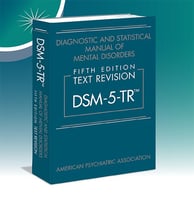APA applauds the Centers for Medicare and Medicaid Services (CMS) for dropping its plan to make...
APA Advocacy Ends Denial of Medicare Claims for Several Common Psychiatric Diagnoses
 |
Moreover, claims submitted by practitioners since December 31, 2015, that had been denied will be retroactively approved and paid. The affected states are Arkansas, Colorado, Delaware, the District of Columbia, Louisiana, Maryland, Mississippi, New Jersey, New Mexico, Oklahoma, Pennsylvania, Texas, and three areas in Virginia: Arlington and Fairfax counties and the city of Alexandria.
In response to concerns expressed by APA leadership, Novitas, the Medicare carrier for those states, agreed to update its LCD to include ICD-10 codes that correspond to DSM-5 diagnoses for more than 40 conditions, including some commonly used by psychiatrists—alcohol dependence, major depression, bipolar disorder, anxiety disorder, schizophrenia, and posttraumatic stress disorder (PTSD).
The problems experienced by psychiatrists and others submitting codes for the disorders in the 13 states have to do with the level of specificity required in ICD-10. Users of ICD-10-CM are generally required to select diagnostic codes at the maximum level of specificity in order to get their claims paid; if a subtype or specifier is reflected in the diagnostic code, the user is obligated to indicate it.
Because the mental disorders section of ICD-10-CM was originally developed in the mid-1990s to correspond to the structure of DSM-IV rather than DSM-5, coded subtypes that appear in DSM-IV but were dropped for DSM-5 have resulted in the diagnostic codes of a number of DSM-5 diagnoses not being accepted by some payers for reimbursement, despite the fact that they are valid ICD-10-CM diagnostic codes.
“This is an example of how APA, working with providers in the field, is able to protect the interests of our members,” said APA CEO and Medical Director Saul Levin, M.D., M.P.A. “We will continue to work with Medicare carriers in all states to ensure timely payment of claims. And we encourage members to contact APA staff with problems or questions they may have about payment of Medicare claims.”
A list of the diagnostic codes for which services were previously being denied and will now be covered can be found here.
(Image: iStock/DragonImages)





